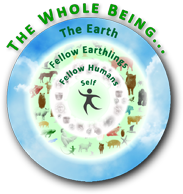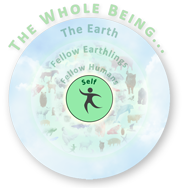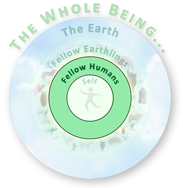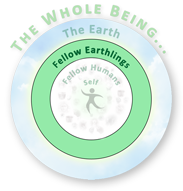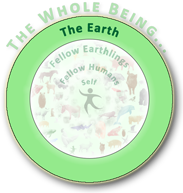Resource Library
To narrow down the list to only resources personally endorsed by CNCL, tick the “CNCL-Endorsed” box.
Please let us know if you find any errors or dead links.
Click here
for a list of…![]()
Broad-Coverage Independent News
& Media Sites
“Working to Find and advance solutions to environment, health, poverty, and development problems…Horizon is a 501 C (3) non-profit organization based at Yale University.” “Hot Dry Rock – An energy free lunch! Yes, Hot Rock Geothermal Energy can supply all the energy we’ll ever need, say scientists and environmentalists familiar with the technology. It taps the heat in the rock just below the ground. There is no environmental cost, no safety problems, no waste. And it works! This program explains how Hot Dry Rock Geothermal Energy functions – and why it’s not being fully developed.” “How many animals are killed for human use every year in the United States? The numbers are in the billions, and these are just the ones we know about. Let’s break it down.” “…researchers found the same “strong relationships between daily positive [mood] and fruit and vegetable consumption.” Additionally, “[l]agged analyses showed that fruit and vegetable consumption predicted improvements in positive [mood] the next day, not vice versa…On days when people ate more fruits and vegetables, they reported feeling calmer, happier and more energetic than they normally do…[and] also felt more positive the next day.” So, eating fruits and vegetables really “may promote emotional well-being.” Single bouts of exercise can elevate one’s mood, so why not the same with healthy food?” Book: “The vast majority of premature deaths can be prevented through simple changes in diet and lifestyle. In How Not to Die, Dr. Michael Greger, the internationally-recognized lecturer, physician, and founder of NutritionFacts.org, examines the fifteen top causes of death in America—heart disease, various cancers, diabetes, Parkinson’s, high blood pressure, and more—and explains how nutritional and lifestyle interventions can sometimes trump prescription pills and other pharmaceutical and surgical approaches, freeing us to live healthier lives. The simple truth is that most doctors are good at treating acute illnesses but bad at preventing chronic disease. The 15 leading causes of death claim the lives of 1.6 million Americans annually. This doesn’t have to be the case. By following Dr. Greger’s advice, all of it backed up by peer-reviewed scientific evidence, you will learn which foods to eat and which lifestyle changes to make to live longer.” Includes a book trailer video and an audiobook sample. Book: “In this thought-provoking book, Tobias Leenaert leaves well-trodden animal advocacy paths and takes a fresh look at the strategies, objectives, and communication of the vegan and animal rights movement. He argues that, given our present situation, with entire societies dependent on using animals, we need a very pragmatic approach. How to Create a Vegan World contains many valuable ideas and insights for both budding advocates for animals and seasoned activists, organizational leaders, and even entrepreneurs.” “In this presentation (31 min), Tobias Leenaert (aka Vegan Strategist) talks about the importance of open-mindedness, empathy, rationality and positivity in the animal rights movement. “ Book: “Decades before the terms “eco-friendly” and “sustainable growing” entered the vernacular, How to Grow More Vegetables demonstrated that small-scale, high-yield, all-organic gardening methods could yield bountiful crops over multiple growing cycles using minimal resources in a suburban environment. The concept that John Jeavons and the team at Ecology Action launched more than 40 years ago has been embraced by the mainstream and continues to gather momentum. Today, How to Grow More Vegetables, now in its fully revised and updated 8th edition, is the go-to reference for food growers at every level: from home gardeners dedicated to nurturing their backyard edibles in maximum harmony with nature’s cycles, to small-scale commercial producers interested in optimizing soil fertility and increasing plant productivity. Whether you hope to harvest your first tomatoes next summer or are planning to grow enough to feed your whole family in years to come, How to Grow More Vegetables is your indispensable sustainable garden guide.” “In these turbulent times, Howard Zinn is inspiring a new generation. This acclaimed film looks at the amazing life of the renowned historian, activist and author. Following his early days as a shipyard labor organizer and bombardier in World War II, Zinn became an academic rebel and leader of civil disobedience in a time of institutionalized racism and war. His influential writings shine light on and bring voice to factory workers, immigrant laborers, African Americans, Native Americans and the working poor. Featuring rare archival materials and interviews with Zinn and colleagues such as Noam Chomsky, You Can’t Be Neutral captures the essence of this extraordinary man who has been a catalyst for progressive change for more than 60 years.” “Human Liberation is Animal Liberation…Understanding the connections between animal and human liberation is important for two reasons: 1) It focuses on the roots of oppression. We cannot make systemic change in society without a full analysis of power and domination. Challenging the oppression of one group requires us to understand the oppression of others, and challenge the oppression of all. 2) Individuals need to examine oppression in all of its forms. By educating ourselves on the intersections between our movements, and by building an intersectional analysis of oppression into our activism, we can simultaneously fight for the liberation of humans, nonhuman animals, and the earth, strengthening all movements.” “Human Rights Watch investigates and reports on abuses happening in all corners of the world. We are roughly 450 people of 70-plus nationalities who are country experts, lawyers, journalists, and others who work to protect the most at risk, from vulnerable minorities and civilians in wartime, to refugees and children in need. We direct our advocacy towards governments, armed groups and businesses, pushing them to change or enforce their laws, policies and practices. To ensure our independence, we refuse government funding and corporate ties. We partner with organizations large and small across the globe to protect embattled activists and to help hold abusers to account and bring justice to victims.” “Taking personal action to end all animal exploitation by not eating, wearing or using animals” “Humane League Labs is a unit of The Humane League, an international non-profit dedicated to farm animal advocacy. Our mission is to inform advocacy strategies through actionable research on their effectiveness…At Humane League Labs, we take an integrated and comprehensive approach to the evaluation of farm animal advocacy. Whether you are a researcher, a veg-oriented business, an activist, a donor or just an interested party curious about what works best in animal advocacy, we invite you to subscribe to our blog, offer feedback, participate in our research and join us in strengthening our work on behalf of farm animals.” “We are a community of former farmers, animal rescuers, animal sanctuary founders, educators, and artists working to create a just and nonviolent future. Currently, both the animal-using industry and some animal advocacy organizations are propagating the idea that it is possible to use and kill animals in a manner that can be fairly described as respectful or compassionate or humane. We believe that this “Humane Myth” misrepresents the realities of animal use, and cultivates a positive image of activities that are neither just nor kind nor sustainable. The purpose of this web site is to correct the misinformation that is associated with the Humane Myth, and to inspire a form of working for the peaceful transformation of our society that fully respects the inherent dignity and worth of animals and people alike.” “Is humanity nothing more than a cancer on the planet, consuming its host until it is gone, guaranteeing its own destruction in the process? A quick glance at the effects of our behavior might lead us to say yes. But looks can be deceiving. Nature shows us that what is destructive on one level can also be part of a larger process of change that creates new forms of value at another level. This story is supported by science.” “Center of the Humanure Universe. Compost toilets can provide a sanitation solution when water or electricity are not available, or when you simply want to make more compost or less environmental pollution.” Book: ““If I had no sense of humor, I should long ago have committed suicide,” wrote the late Mahatma Gandhi, expressing the potent power of humor to sustain and uplift. Less obvious is humor’s ability to operate as a cunning weapon in nonviolent protest movements. Over the last few decades, activists are increasingly incorporating subversive laughter in their protest repertoires, realizing the ways in which it challenges the ruling elite’s propaganda, defuses antagonism, and inspires both participants and the greater population. In this highly original and engaging work, Sombatpoonsiri explores the nexus between humor and nonviolent protest, aiming to enhance our understanding of the growing popularity of humor in protest movements around the world. Drawing on insights from the pioneering Otpor activists in Serbia, she provides a detailed account of the protesters’ systematic use of humor to topple Slobadan Miloševic’ in 2000. Interviews with activists, protest newsletters, and documentaries of the movement combine to illustrate how humor played a pivotal role by reflecting the absurdity of the regime’s propaganda and, in turn, by delegitimizing its authority. Sombatpoonsiri highlights the Otpor activists’ ability to internationalize their nonviolent crusade, influencing youth movements in the Ukraine, Georgia, Iran, and Egypt. Globally, Otpor’s successful use of humor became an inspiration for a later generation of protest movements.” “This book analyses how humour in political activism contributes to facilitating outreach, mobilisation and the sustaining of cultures of resistance. Drawing on examples of attention-grabbing stunts from around the world, Humour in Political Activism demonstrates how they succeed in turning relations of power upside down. The ambiguity and unpredictability of humour, Sørensen argues, makes it difficult to respond to this form of political activism when it is performed in public. Humorous political stunts can therefore challenge state power, help influence changes in law and make significant contributions to the conversations about how societies should be organised. The book also investigates the potential risks and limitations of using humour in nonviolent action and what makes humour unique compared with other forms of non-humorous political activism.” “The age-old practice of sitting down to a family meal is undergoing unprecedented change as rising world affluence and trade, along with the spread of global food conglomerates, transform eating habits worldwide. HUNGRY PLANET profiles 30 families from around the world–including Bosnia, Chad, Egypt, Greenland, Japan, the United States, and France–and offers detailed descriptions of weekly food purchases; photographs of the families at home, at market, and in their communities; and a portrait of each family surrounded by a week’s worth of groceries. Featuring photo-essays on international street food, meat markets, fast food, and cookery, this captivating chronicle offers a riveting look at what the world really eats. “ Online Documentaries “I collect and stream documentaries. No pseudo-science, religion or aliens. Only good, scientific-based content.”Found 1620 Results
Horizons International Solutions Site

Hot Dry Rock EnviroVideo Documentary

How Many Animals are Killed Each Year?
![]()
How Many Servings of Fruits and Vegetables to Improve Mood?
![]()
How Not to Die
How to Create a Vegan World: A Pragmatic Approach
How to Create a Vegan World? – Tobias Leenaert
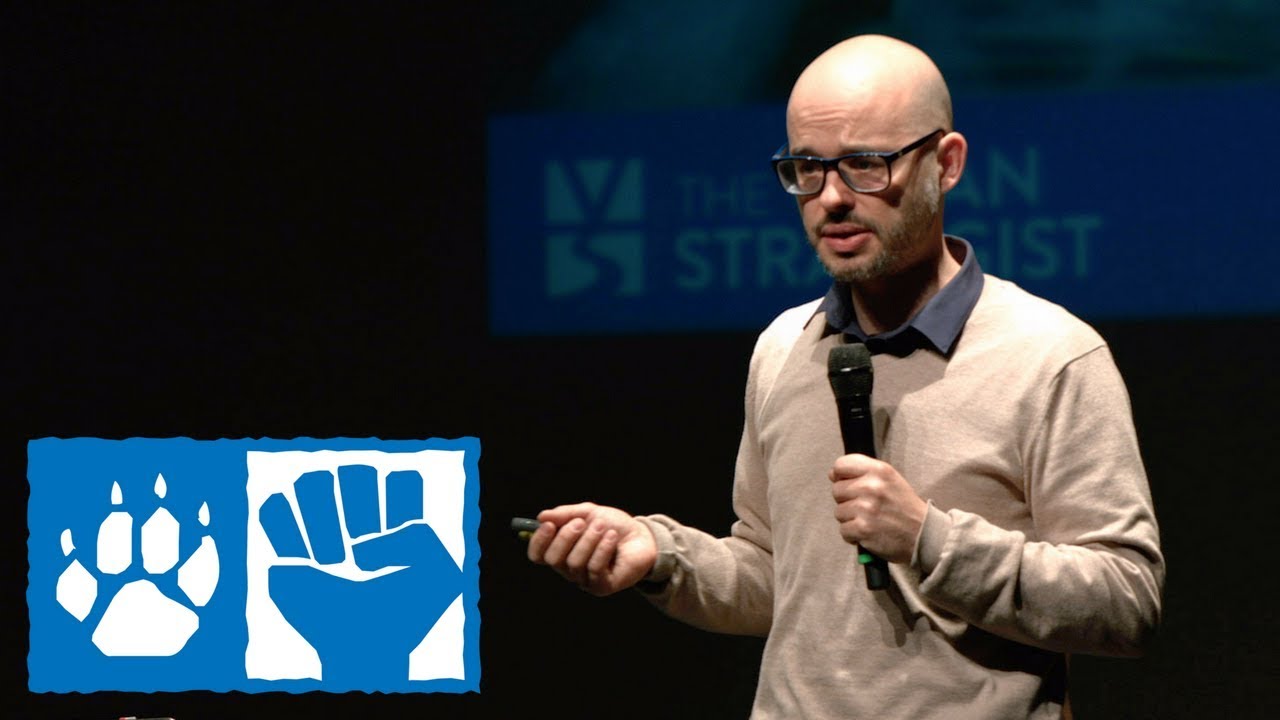
How to Grow More Vegetables
Howard Zinn: You Can’t Be Neutral On a Moving Train (2004)
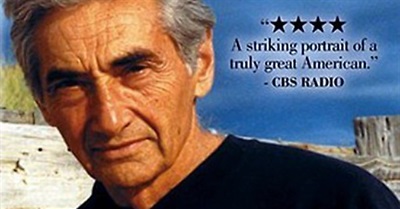
Human Liberation Animal Liberation

Human Rights Watch
![]()
Humane Decisions
![]()
Humane League Labs
![]()
HumaneMyth

Humanity’s True Purpose
![]()
Humanure Handbook
![]()
Humor and Nonviolent Struggle in Serbia (Syracuse Studies on Peace and Conflict Resolution)
Humour in Political Activism: Creative Nonviolent Resistance
Hungry Planet: What the World Eats
I Have No TV

